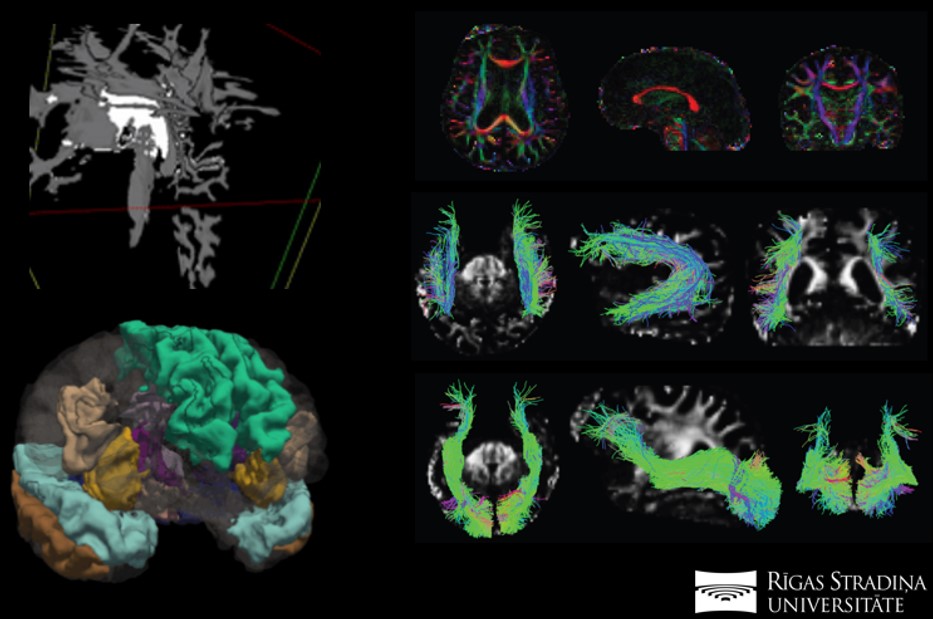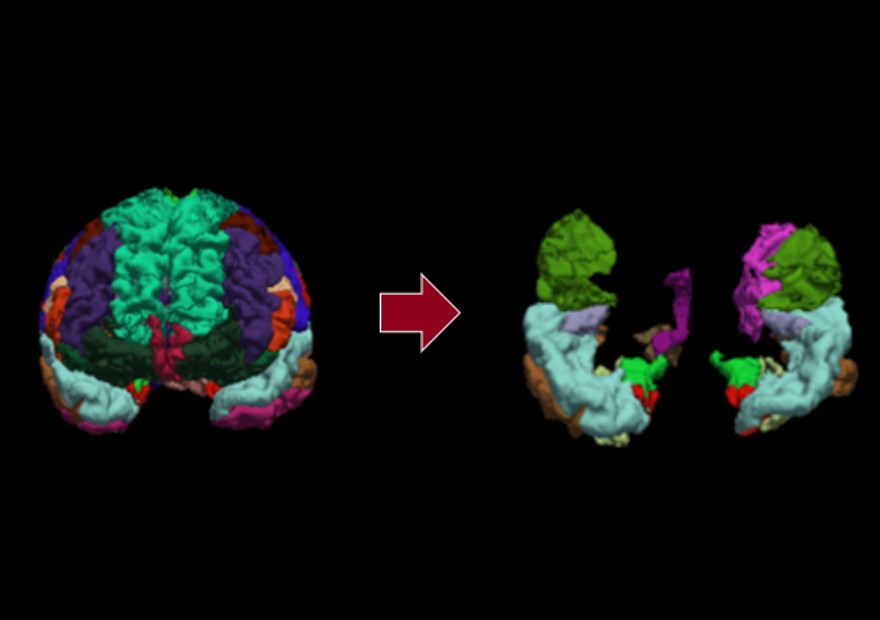Research on the role of radiological biomarkers in the diagnosis of cognitive impairment
When a patient suffers from a neurodegenerative disease such as Alzheimer's or Parkinson's, their brain and nerve cells gradually deteriorate leading to impaired memory, cognitive function, and range of movement. The timely diagnosis and treatment of neurodegenerative diseases is a major challenge of the 21st century in Europe and worldwide.
This thesis studies the possibilities of magnetic resonance imaging (MRI) analysis, which includes visually assessing the brain, a quantitative measurement of brain structures, and structural analysis of the brain's white matter. The aim of the study was to determine the differences between these parameters in patients with and without cognitive impairment. Cognitive impairment affects thinking, memory, concentration, and decision-making and can manifest as a difficulty in remembering, concentrating, planning, solving problems, or orienting in time and space. These disorders can be mild or severe and occur when the patient has a neurodegenerative disorder.
 Different reconstruction options for MRI scans of the brain. Image from the thesis by Nauris Zdanovskis
Different reconstruction options for MRI scans of the brain. Image from the thesis by Nauris Zdanovskis
The results of the thesis suggest that certain parts of the brain, their volume, and cortical thickness might be related to cognitive function outcomes.
 On the right - the parts of the brain that were examined. On the left, parts whose volume and cortical thickness were smaller in patients with cognitive impairment. Image from the thesis by Nauris Zdanovskis
On the right - the parts of the brain that were examined. On the left, parts whose volume and cortical thickness were smaller in patients with cognitive impairment. Image from the thesis by Nauris Zdanovskis
In addition, the study assessed participants’ white matter structure to determine whether there were differences between those with and without cognitive impairment.
The relations that were identified serve as a basis for further research on the use of quantitative radiological biomarkers in diagnosing cognitive impairment. This could enable the early identification of patients at risk of developing cognitive impairments in the future.
Through in-depth analysis of MRI scans, it is possible to provide broader and more detailed information on anatomical and structural changes in the brain that are relevant for the diagnosis, monitoring, and evaluation of the effectiveness of different treatments for cognitive impairment.
Nauris Zdanovskis will defend his doctoral thesis Brain Qualitative and Quantitative Radiological Biomarker Association with Cognitive Impairment and Dementia on 13 December 2023. Read more
Related news
 18 Student teams to start developing their ideas in B-Space incubation programmeFor RSU Employees, For Students, Innovation, B-Space
18 Student teams to start developing their ideas in B-Space incubation programmeFor RSU Employees, For Students, Innovation, B-Space


